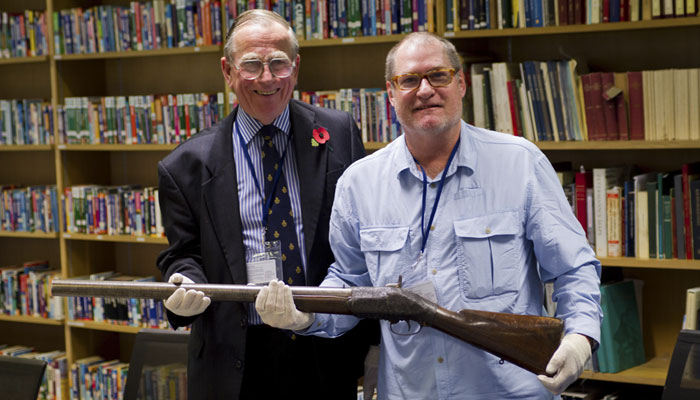
Sir Samuel White Baker “The White Pasha” 8 June 1821 – 30 December 1893

Lady Florence Baker (1841–1916)
I just finished reading Baker’s narrative of how he and his 23 year old wife, Florence, traveled from Cairo up the Nile to try to discover the source of the Nile. Florence was his second wife, a Transylvanian girl whom he had rescued, when she was only 15, from a white slave auction in Vidin (Bulgaria, then controlled by the Turks). He was out-bid during the auction but managed to kidnap her by paying off the eunuch in charge of her. Florence’s story is chronicled in Pat Shipman’s books The Stolen Woman and To the Heart of the Nile
Baker begins with this paragraph: “In March, 1861, I commenced an expedition to discover the sources of the Nile, with the hope of meeting the East African expedition of Captains Speke and Grant, that had been sent by the English Government from the South via Zanzibar, for that object. I had not the presumption to publish my intention, as the sources of the Nile had hitherto defied all explorers, but I had inwardly determined to accomplish this difficult task or to die in the attempt. From my youth I had been inured to hardships and endurance in wild sports in tropical climates, and when I gazed upon the map of Africa I had a wild hope, mingled with humility, that, even as the insignificant worm bores through the hardest oak, I might by perseverance reach the heart of Africa.”
His descriptions of the journey, the people he met, the customs and fashions of Arab men and women are remarkable. He marvels at the riding skills of Arab horsemen and laments the bone-jarring experience of riding camels and dromedaries. He describes how he, Florence and many of his helpers and porters suffered from fevers, undoubtedly malaria, throughout the journey and how flies, likely tsetse, virtually decimated their horses and bullocks.
However, true to the proclivities of Victorian and later white hunters and explorers, much of the book is spent on narrating tales of how he stalked, shot and often killed various wild animals, including elephants, hippos, crocodiles and even giraffes. His favorite gun, the “Baby”, discharged half-pound explosive shells that blew up in the lungs of these animals such that they would die often after many minutes of agony after being shot.
He described this gun as follows: “Among other weapons, I had an extraordinary rifle that carried a half-pound percussion shell–this instrument of torture to the hunter was not sufficiently heavy for the weight of the projectile; it only weighed twenty pounds: thus, with a charge of ten drachms of powder, behind a HALF-POUND shell, the recoil was so terrific, that I was spun round like a weathercock in a hurricane. I really dreaded my own rifle, although I had been accustomed to heavy charges of powder and severe recoil for many years. None of my men could fire it, and it was looked upon with a species of awe, and was named “Jenna el Mootfah” (child of a cannon) by the Arabs, which being far too long a name for practice, I christened it the “Baby;” and the scream of this “Baby,” loaded with a half-pound shell, was always fatal.”

David Baker, the great-great-grandson of Sir Samuel White Baker with Julian Monroe Fisher in the Foley Reading Room at the Royal Geographical Society in London, November 2012. David and Julian are holding Sir Samuel Baker’s original expedition rifle, “the baby”. http://www.julianmonroefisher.com/greatafrica/pages/phase02.htm
As it turns out, Speke and Grant, whom he met at Gondokoro (in Sudan) within 2 months of his trip, had already discovered the source of the Nile as Lake Victoria (at Jinja). It is reported that Speke had walked all the way after sailing to the mainland from Zanzibar, never having resorted to riding or being carried by porters unlike the usual practice of white explorers of that time. Speke and Grant had not been able to travel west of Karuma falls due to inter-tribal warfare going on at the time they were in the region, so were unaware of the great falls and lake which was ultimately “discovered” by Baker and named “Murchison Falls” after Sir Roderick Impey Murchison, the President of the Royal Geographical Society and Lake Albert after Queen Victoria’s late husband, respectively.
Early morning at Lake Albert. © Diponkar Banerjee 2008.
Although knighted when he returned to Britain, Baker was largely shunned by the Queen who disapproved of his marriage to Florence.





